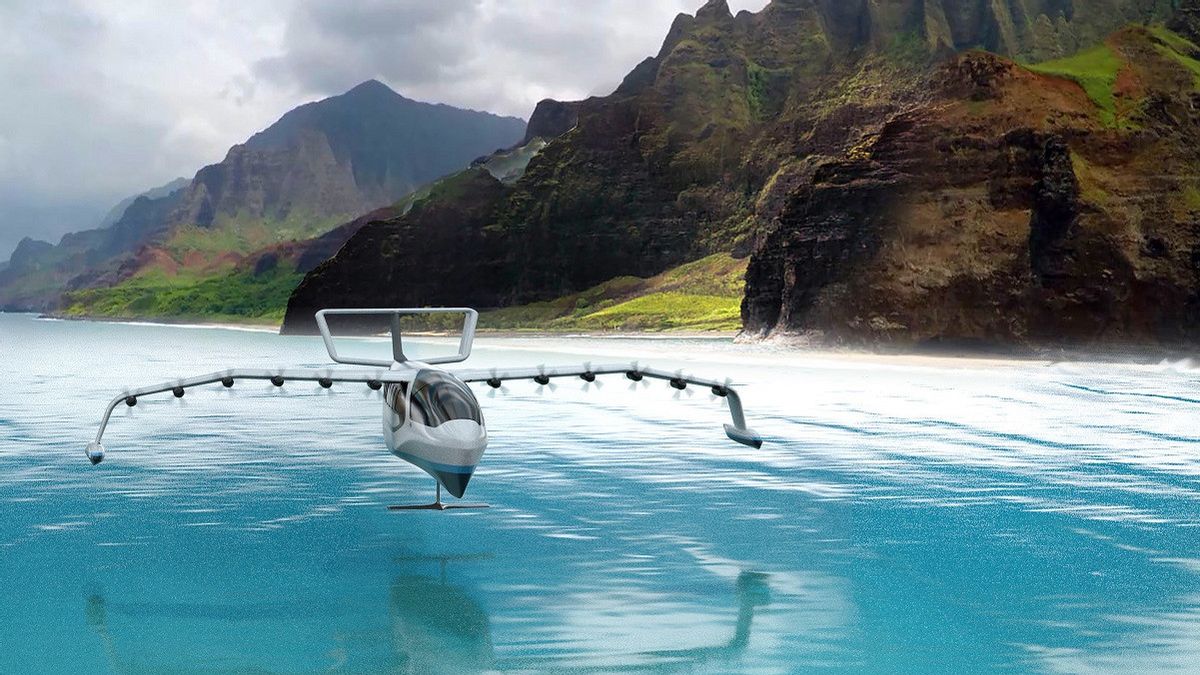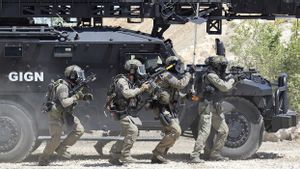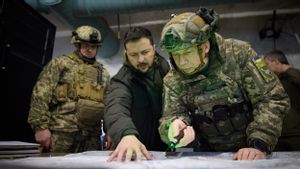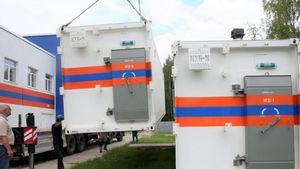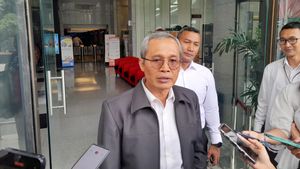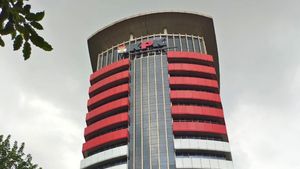JAKARTA - Airplanes flying at high speed above the water will be built in the United Arab Emirates (UAE), following the signing of an agreement between US sea transportation companies, Regents, and the Abu Dhabi Investment Office last month.
Boston startup Regent has also signed an agreement with the Abu Dhabi Department of Transport to integrate electric-powered amphibious aircraft into the existing UAE transportation network, focusing on large-impact routes, such as offshore services to Delma Island and Sir Bani Yas Island.
Regent is in the development stage of its passenger plane, Viceroy, which uses a wing-in-ground effect to travel at speeds of up to 290kph in a wide range of wings on the water surface. This will reduce travel time between coastal cities by more than half.
The company, which has demonstrated floating, foil and fly technology in testing on a quarter-scale model, is now building a full-scale 20-meter wingwidth model capable of carrying 12 passengers and two crew members, to test its use before starting full production next year at its base in Rhode Island.
Regents received significant support from industry and investors in increasing Series A funding of US$60 million, including the Abu Dhabi Strategic Development Fund and Neom Investment Fund, which is the largest investment in the round.
There is also support from Japan Airlines, Hawaiian Airlines, Lockheed Martin and Shark Tank star and billionaire Mark Cuban, with total investment now reaching 90 million US dollars.
co-founder and chief executive Billy Thalheimer said Regent also had orders of more than $9 billion from airline and ferry operators for Viceroy and Monarch ships with a capacity of 100 passengers, which he hopes will change regional transportation for coastal areas.
"Regent has manufacturing and testing facilities in Rhode Island and is "looking for other locations in the US" to develop its construction capacity, Thalheimer told The National News as quoted on May 5.
To help fulfill orders in the Middle East, Europe, and Indo-Pacific regions, Regent will "coupled the production of sea kites in Abu Dhabi", he said.
"Currently we are working with Adio to realize the plan. Our goal is to build manufacturing at the end of this decade," explained Thalheimer.
"The next step is to attract all relevant players, identify locations, prepare manufacturing, and find out what the whole plan is like, when we can start and what is needed in the manufacturing process in Abu Dhabi," he continued.
Thalheimer said the seaplane would help inter-emirate connectivity, offering passengers the option to avoid busy highways between Abu Dhabi and Ras Al Khaimah.
"Currently, if you look from Abu Dhabi to Ras Al Khaimah, what you mean is a maximum travel time of two and a half hours. But (with a seaglider) you will be able to travel a day and be able to travel it within one day less than an hour," he explained.
"It's like the Gulf Metro created by the seagliders here, which the Department of Defense can operate."
The journey between Abu Dhabi and Dubai is one of the busiest road trips in the UAE. Offering high-speed water connections between the two cities will cut travel times by more than half.
"The seaglider is almost equivalent on that route. It will be a little faster than the car because you are moving faster, but what is clear is that a car goes from door to door but the seaglider has to go to the dock first," he said.
"The journey takes about 25 minutes. So we can cut the travel time to half," he said.
The wing-in-ground effect technology itself has been around for more than 60 years, based on the use of aerodynamic lift-up plus air pressure generated by flying close to the surface of the water, the same principle that allows FIRE to glide low above water.
Seaglider Regent is designed in an intermediary position between the boat and the glider, appearing on the hydrofoil, allowing it to navigate busier waters and bad weather.
After leaving the port using hydrofoil, the seaglider takes off at low speed using water as a runway, then flies over the waves at the highest speed of 290kph.
This allows fast access around coastal waters, particularly from island to mainland, to be able to serve routes up to 300 km with existing battery technology and 800 km with subsequent generation batteries.
The Abu Dhabi Department of Transportation will later integrate the use of seagliders in emirates, starting with Delma Island, where 10,000 residents use flights once a day to access services on land, as well as Sir Bani Yas Island, home to protected wildlife asylum and Desert Islands Resort & Spa by Anantara.
"Currently, (Delta) is served by a Q400 turboprop aircraft with one flight a day," said Thalheimer.
"You can imagine how uncomfortable it is to have to take a plane that only departs once a day to leave the house to access economic opportunities, education, medical care. Seaglider increases flexibility and access to the mainland for those on Delma Island," he continued.
Later, Regent will be part of the Smart and Autonomous Vehicle Industry (Savi) cluster, located in Masdar City, which aims to develop smart and driverless vehicles for air, land and sea use.
Founded as a multimodal center in October, Sapi is expected to contribute between 90 billion UAE dirhams to 120 billion UAE dirhams ($24.5 billion to US$32.7 billion) to the UAE economy and create up to 50,000 jobs.
Badr Al Olama, director general Adio said Regent would "form a coastal transport future".
SEE ALSO:
"With incredible speed and efficiency, I believe Abu Dhabi will witness the global deployment of electric seagliders and this will dramatically change the way goods and people move in the world coastal region in the future," Al Olama said.
It is known, Abu Dhabi has tried to provide a more intelligent and efficient mode of transportation for its residents.
In February, Abu Dhabi and Shenzhen (China) signed a twin-city agreement to share knowledge and collaborate in smart-city projects in several areas including infrastructure, urban planning, environmentally friendly mobility, transportation, advanced technologies, autonomous solutions, sustainability and urban development.
Abu Dhabi is also testing driverless taxis in the emirate, while flying taxis are expected to be present in the skies of Abu Dhabi and Dubai next year, cutting travel times significantly between the two emirates.
The English, Chinese, Japanese, Arabic, and French versions are automatically generated by the AI. So there may still be inaccuracies in translating, please always see Indonesian as our main language. (system supported by DigitalSiber.id)
